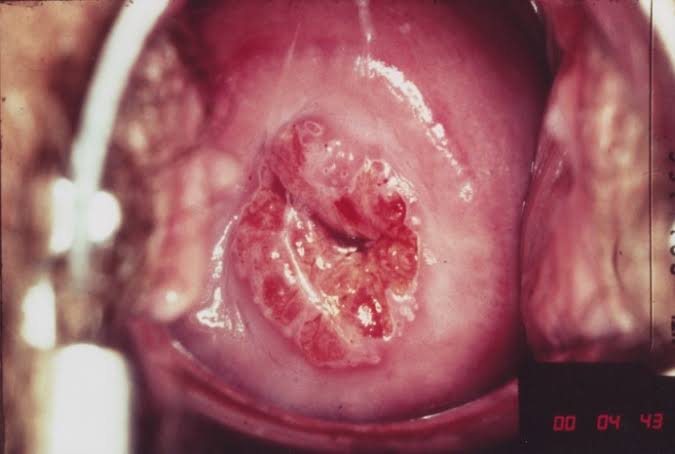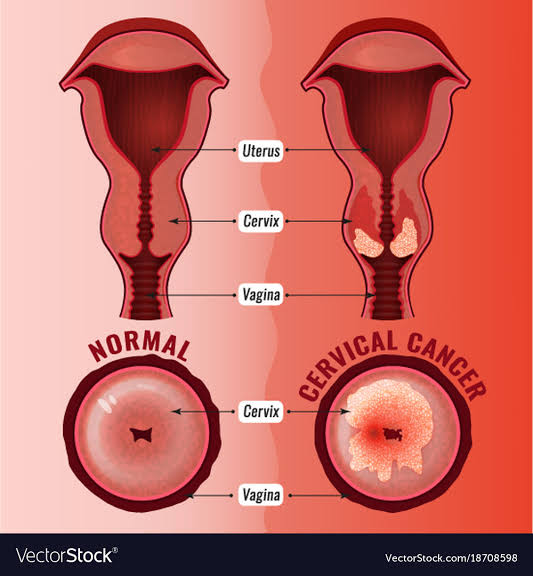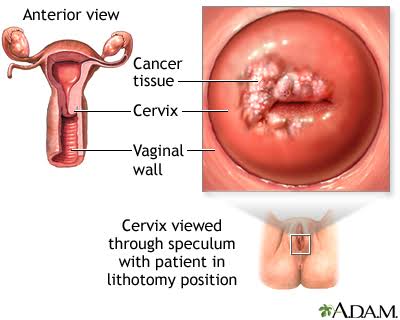TWO DAYS AGO, I had a free WhatsApp class on XDIFY where I taught CERVICAL CANCER.
During the session, beyond giving them a general view of what cervical cancer is and what the virus implicated in causing it, Human Pailloma Virus 16 and 18, I made sure I touched on the RISK FACTORS, SIGNS AND SYMPTOMS and PREVENTION, especially as regards doing a PAP SMEAR and getting VACCINATED.
At least 14,000 women are diagnosed with it every year across the world and a minimum of 8,000 die from it yearly as well.
It was a topic that caught a lot of them by surprise, especially the young ladies, probably because they hadn’t understood it so clearly and so didn’t think it’s a big deal.

To summarize, here are a few things you need to know:
~ Cervical cancer simply means a cancer of the cervix. The cervix is the lowest part of the womb, often called the “gateway to the womb”.
~ Cervical cancer is the second most common cancer in women after breast cancer, and like every other cancer, it can kill.
Some of the RISK FACTORS for having cervical cancer are:
~ Early coitarche (this means early age of first sexual intercourse)
~ Having multiple male sexual partners
~ Having sex with a male partner who has multiple female sexual partners
~ Family history
~ Prolonged use of oral contraceptives
~ Multiparity (this means having given birth to more than on child)
~ Low socio-economic status
~ Smoking
~ History of STIs
~ Immunocompromise as seen in women who have HIV or TB
But how does it manifest? How will a lady begin to suspect it?

SIGNS and SYMPTOMS
~ Bleeding after sex
~ Bleeding between periods
~ Sudden vaginal bleeding in older women who had stopped seeing their periods
~ Copious vaginal discharge that is foul-smelling and could contain blood
As the cancer advances, the lady could also have:
~ Abdominal pain
~ Weight loss
~ Loss of appetite
~ Inability to control urine or poo
~ Diarrhea
~ Constipation
~ Blood in urine
~ Cough, difficulty in breathing
~ Yellowness of the eyes
~ Difficulty standing or walking
~ Seizures, coma
However, instead of waiting for any of the early symptoms, it is best to go for a PAP SMEAR test.
This is a screening test that identifies a lady capable of having cervical cancer in the future so that treatment can begin quickly. Younger ladies less than 49 years should have this PAP SMEAR test every 3 years.
In addition, try and get vaccinated. Cervical cancer is one that can be totally eradicated. There are two types of vaccines available:
~ Cervarix – which protects against HPV 16 & 18
~ Gardasil – which protects against HPV 6, 11, 16 & 18 (some texts say it protects against up to 9 strains of HPV)
All you need to do is to walk into a government hospital and make necessary inquiries. The PAP SMEAR is affordable, but the vaccine can be a bit costly in most places.
It is better to be safe than sorry, cos cervical cancer is very dangerous!
Do a PAP SMEAR test toda
Remember:
+++Impossibility is nothing. Just believe+++
© Caséy Amaefule ’20

